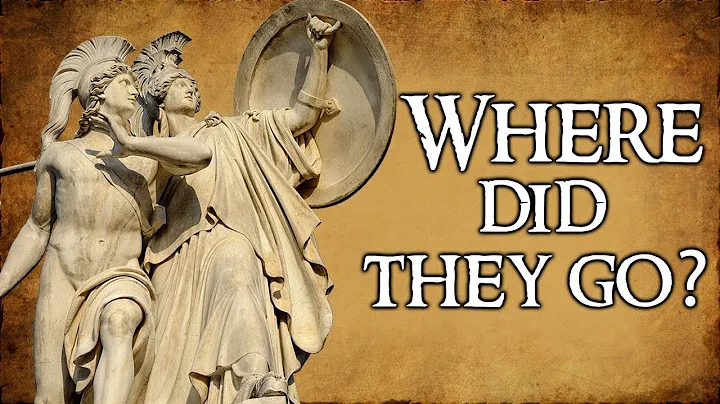When you talk about gambling, you usually think of casinos, baccarat, roulette, lotteries, dice, etc. But have you ever wondered when or how gambling first originated? In fact, some forms of gambling have existed in nearly the same form for thousands of years.

Gambling with the Greeks
Gambling has intrigued the Greeks since time immemorial, and we don't seem to have forgotten the bad habits of the past. Who would have thought that the origins of poker can be traced back to the Minoan civilization 3500 years ago? Today, we consider a double six to be lucky in a game of dice, which also has ancient origins. Thousands of years ago, throwing two sixes was known as the "Aphrodite Throw", signifying victory in the game.

Greek bronze miniatures from Volimos, 7th-6th century AD. BC (Dan Diffindale / CC BY-NC-SA 2.0)
From references in Homer and other ancient texts we can find that gambling games have been widely used in ancient Greece . Dice games, heads and tails, and other games based on "luck" have always been played by different groups. There are even some special places where people who are keen on gambling will go to play. However, like casinos today, those places had a bad reputation and it was considered shameful for someone to go there.
People will lose their fortunes gambling, as we do today. In ancient Greece, however, gamblers were supported by a pair of gods - Hermes and Pan. It is said that even the gods have played a game or two. In Greek mythology, Zeus , Hades and Poseidon played "roll the dice" in order to split the universe between them.
Most ancient Greek writers and philosophers condemned gambling, mentioning that at some point gambling became like the plague, leading governments to take steps to reduce these activities. Clearly, cheating has been around for as long as there is gambling, and it was the same way back in the olden days.
The gambling game of chance and skill
Checkers is a game called "tilia" in ancient Greece, in Roman it was called a 12-line game. The scenes on the pottery show that the betting animals (including chickens, birds and dogs) were also active in fighting, so animals were raised.
Heads and tails were also popular, played with shells, and later with coins in Roman times, as they are today. Dice was a popular ancient Greek game where they used three cubes made of clay, and later the game continued in Roman times, but the number of dice was reduced to two, and it continues in this form to this day.

Roman man rolling dice as shown on a Pompeii fresco.
In ancient Rome , gambling was between slaves and masters, and for a time it was even popular among emperors. Gambling was also popular in ancient China, Egypt and islam . We can also find references in the Jewish Talmud and Buddhism. In all cases, it is regulated and gamblers are severely punished. "Drawing lots" was a popular form of gambling in ancient Rome, and there are even biblical passages that mention Roman guards casting Jesus clothes during the crucifixion. Gambling is used to settle disputes or to reveal "god" answers to problems.
In China we have the Keno game , which is played with checkered cards with numbers from 1 to 80. You can circle a set of numbers and then draw (like today's lotto) to determine the "lucky" number.The origins of this game can be traced back to 2000 years ago, and the original game was called "Pigeon Ticket". With the permission of the governor, the game will be allowed to be played in casinos, and the governor will receive a percentage of the profits. Another game of chance was invented by the Chinese using tiles in 2,300 BC, and by 900 AD, the Chinese invented the card game decorated with human figures, which was later expanded throughout Europe by Mamalukes (followers of Islam) who used the shape, Later Europeans adjusted the cards to show the king and queen we see in the deck today.
Incredibly, dice objects dating back 40,000 years have been found, and cave drawings of the game provide further evidence that gaming and gambling have been around for a long time. Gambling seems to be in our nature.





















